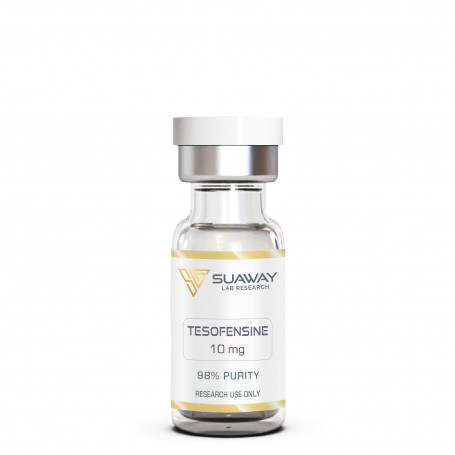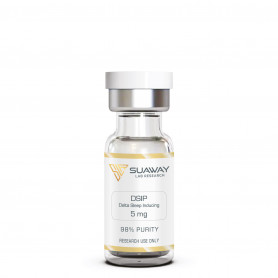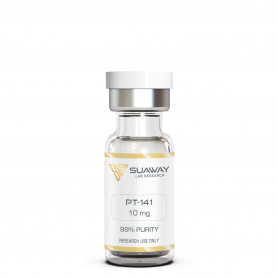TESOFENSINE 10mg
Tesofensine significantly supports weight loss, body fat reduction, and appetite reduction. It increases an individual's resting energy expenditure by stimulating the fat oxidation process. Below are its main effects:
- Reduced body fat / Weight loss
- Appetite suppression
- Improved libido
- Better sleep quality
- Improved cognitive function
Description
STRUCTURE
Molecular Formula: C17H23Cl2NO
Molecular Weight: 3.277 g/mol
PubChem CID: 11370864
CAS No: 195875-84-4 (Deprecated: 402856-42-2)
Peptide purity: Greater than 98%
Use: for oral use only
DESCRIPTION
Tesofensine is a triple monoamine reuptake inhibitor with intrinsic inhibitory activity on norepinephrine, serotonin, and dopamine transporter function. This pharmacological profile suggests that Tesofensine works centrally to modulate appetite and energy consumption. Notably, it induces appetite suppression through indirect stimulation of α1 adrenoceptor and dopamine D1 receptor pathways.
A landmark study by Astrup et al. (2008) demonstrated the effectiveness of Tesofensine in inducing significant weight loss and improving the quality of life in obese patients. The trial, a double-blind, randomized, controlled, prospective study, involved 203 participants who were placed on an energy-restricted diet and received varying doses of Tesofensine or a placebo for 24 weeks. The results showed significant, placebo-adjusted weight losses of 4.7%, 9.2%, and 10.4% for doses of 0.25 mg, 0.5 mg, and 1.0 mg of Tesofensine, respectively. This weight loss is notably higher than what is typically achieved by current anti-obesity drugs.
The most common adverse effects observed were gastrointestinal, such as dry mouth, nausea, constipation, and diarrhea. Additionally, there was a dose-dependent increase in heart rate in all groups, with up to an 8.1 beats per minute increase.
Recent studies have explored the effects of Tesofensine on neuronal mechanisms. Research on mice and rats, employing techniques like DeepLabCut videotaped analysis and electrophysiological ensemble recordings, revealed that Tesofensine induced greater weight loss in obese rats compared to lean rats. This effect was associated with changes in Lateral Hypothalamus ensemble activity, and tesofensine was found to inhibit a subset of LH GABAergic neurons. This inhibition reduced their ability to promote feeding behavior, highlighting the drug's unique action in the brain.
Tesofensine represents a novel approach in treating obesity. Its potent appetite-suppressing effects, coupled with its ability to induce significant weight loss, make it a valuable candidate in the fight against obesity. The ongoing and future clinical trials will be pivotal in confirming these findings and establishing Tesofensine as a safe and effective treatment option for obesity.
REFERENCES
Henrik Hansen et al., "Tesofensine induces appetite suppression and weight loss with reversal of low forebrain dopamine levels in the diet-induced obese rat" [PubMed]
A. Astrup et al., "Effect of tesofensine on bodyweight loss, body composition, and quality of life in obese patients: a randomised, double-blind, placebo-controlled trial" [PubMed]
N.T. Bello et al., "Tesofensine, a monoamine reuptake inhibitor for the treatment of obesity" [PubMed]
S.A. Doggrell "Tesofensine--a novel potent weight loss medicine" [PubMed]
DISCLAIMER
This product is intendend for lab research and development use only. These studies are performed outside of the body. This product is not medicines or drugs and has not been approved by the FDA or EMA to prevent, treat or cure any medical condition, ailment or disease. Bodily introduction of any kind into humans or animals is strictly forbidden by law. This product should only be handled by licensed, qualified professionals.
All product information provided on this website is for informational and educational purposes only.












